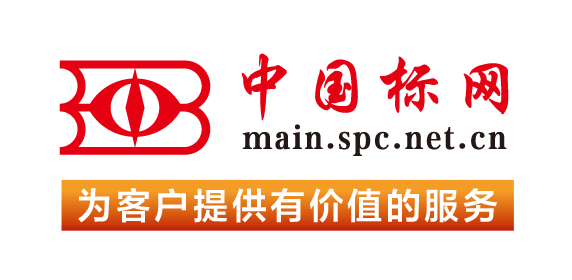【国外标准】 Standard Specification for Pressure Consolidated Powder Nickel Alloy Pipe Flanges, Fittings, Valves, and Parts
本网站 发布时间:
2024-02-28
开通会员免费在线看70000余条国内标准,赠送文本下载次数,单本最低仅合13.3元!还可享标准出版进度查询、定制跟踪推送、标准查新等超多特权!
查看详情>>
适用范围:
This specification tackles standards for pressure consolidated powder metallurgy iron-nickel-chromium-molybdenum and nickel-chromium-molybdenum-columbium pipe flanges, fittings, valves, and parts intended for general corrosion or heat-resisting service. Compacts shall be manufactured by placing a single powder blend into a can, evacuating the can, and sealing it. The can material shall then be selected to ensure that it has no deleterious effect on the final product. The specimen shall be heated and placed under sufficient pressure for a sufficient period of time to ensure that the final consolidated part is fully dense. The powder shall be produced by vacuum melting followed by gas atomization. The heats shall be thoroughly mixed to ensure homogeneity when powder from more than one heat is used to make a blend. The material shall have the chemical compositions of carbon, manganese, silicon, phosphorus, sulfur, chromium, molybdenum, nickel, iron, cobalt, columbium, aluminum, titanium, nitrogen, and copper. Hydrostatic test shall be conducted and the specimen must show no leaks. The density test shall be performed using sample suspended from a scale and weighed in air and water using Archimede’s principle. Check Analysis shall be wholly the responsibility of the purchaser. The parts of the specimen shall be uniform in quality and condition, and shall be free from injurious imperfections.1.1 This specification covers pressure consolidated powder metallurgy nickel alloy pipe flanges, fittings, valves, and parts intended for general corrosion or heat-resisting service.1.1.1 UNS N06625 products are furnished in two grades of different heat-treated conditions:1.1.1.1 Grade 1 (annealed)—Material is normally employed in service temperatures up to 1100 °F (593 °C).1.1.1.2 Grade 2 (solution annealed)—Material is normally employed in service temperatures above 1100 °F (593 °C) when resistance to creep and rupture is required.1.2 UNS N08367 products are furnished in the solution annealed condition.1.3 UNS N06600 products are furnished in the annealed condition.1.4 UNS N06690 products are furnished in the annealed condition.1.5 UNS N07718 products are furnished in the solution annealed + precipitation hardened condition.1.6 The values stated in inch-pound units are to be regarded as standard. The values given in parentheses are mathematical conversions to SI units that are provided for information only and are not considered standard.1.7 The following safety hazards caveat pertains only to test methods portions, Sections 7.3 and 13, of this specification: This standard does not purport to address all of the safety concerns, if any, associated with its use. It is the responsibility of the user of this standard to become familiar with all hazards including those identified in the appropriate Safety Data Sheet (SDS) for this product/material as provided by the manufacturer, to establish appropriate safety, health, and environmental practices, and to determine the applicability of regulatory limitations prior to use.1.8 This international standard was developed in accordance with internationally recognized principles on standardization established in the Decision on Principles for the Development of International Standards, Guides and Recommendations issued by the World Trade Organization Technical Barriers to Trade (TBT) Committee.
标准号:
ASTM B834-22
标准名称:
Standard Specification for Pressure Consolidated Powder Nickel Alloy Pipe Flanges, Fittings, Valves, and Parts
英文名称:
Standard Specification for Pressure Consolidated Powder Nickel Alloy Pipe Flanges, Fittings, Valves, and Parts标准状态:
Active-
发布日期:
-
实施日期:
出版语种:
- 推荐标准
- ASTM C1134-23 Standard Test Method for Water Retention of Rigid Thermal Insulations Following Partial Immersion
- ASTM C1136-23 Standard Specification for Flexible, Low Permeance Vapor Retarders for Thermal Insulation
- ASTM C1138M-19 Standard Test Method for Abrasion Resistance of Concrete (Underwater Method)
- ASTM C1147-14(2022) Standard Practice for Determining the Short Term Tensile Weld Strength of Chemical-Resistant Thermoplastics
- ASTM C1152/C1152M-20 Standard Test Method for Acid-Soluble Chloride in Mortar and Concrete
- ASTM C1153-23 Standard Practice for Location of Wet Insulation in Roofing Systems Using Infrared Imaging
- ASTM C1156-18 Standard Guide for Establishing Calibration for a Measurement Method Used to Analyze Nuclear Fuel Cycle Materials
- ASTM C1157/C1157M-23 Standard Performance Specification for Hydraulic Cement
- ASTM C1161-18(2023) Standard Test Method for Flexural Strength of Advanced Ceramics at Ambient Temperature
- ASTM C1165-23 Standard Test Method for Determining Plutonium by Controlled-Potential Coulometry in H2SO4 at a Platinum Working Electrode
- ASTM C1168-23 Standard Practice for Preparation and Dissolution of Plutonium Materials for Analysis
- ASTM C117-23 Standard Test Method for Materials Finer than 75-μm (No. 200) Sieve in Mineral Aggregates by Washing
- ASTM C1170/C1170M-20 Standard Test Method for Determining Consistency and Density of Roller-Compacted Concrete Using a Vibrating Table
- ASTM C1173-22 Standard Specification for Flexible Transition Couplings for Underground Piping Systems
- ASTM C1174-20 Standard Guide for Evaluation of Long-Term Behavior of Materials Used in Engineered Barrier Systems (EBS) for Geological Disposal of High-Level Radioactive Waste
 购物车
购物车 400-168-0010
400-168-0010













